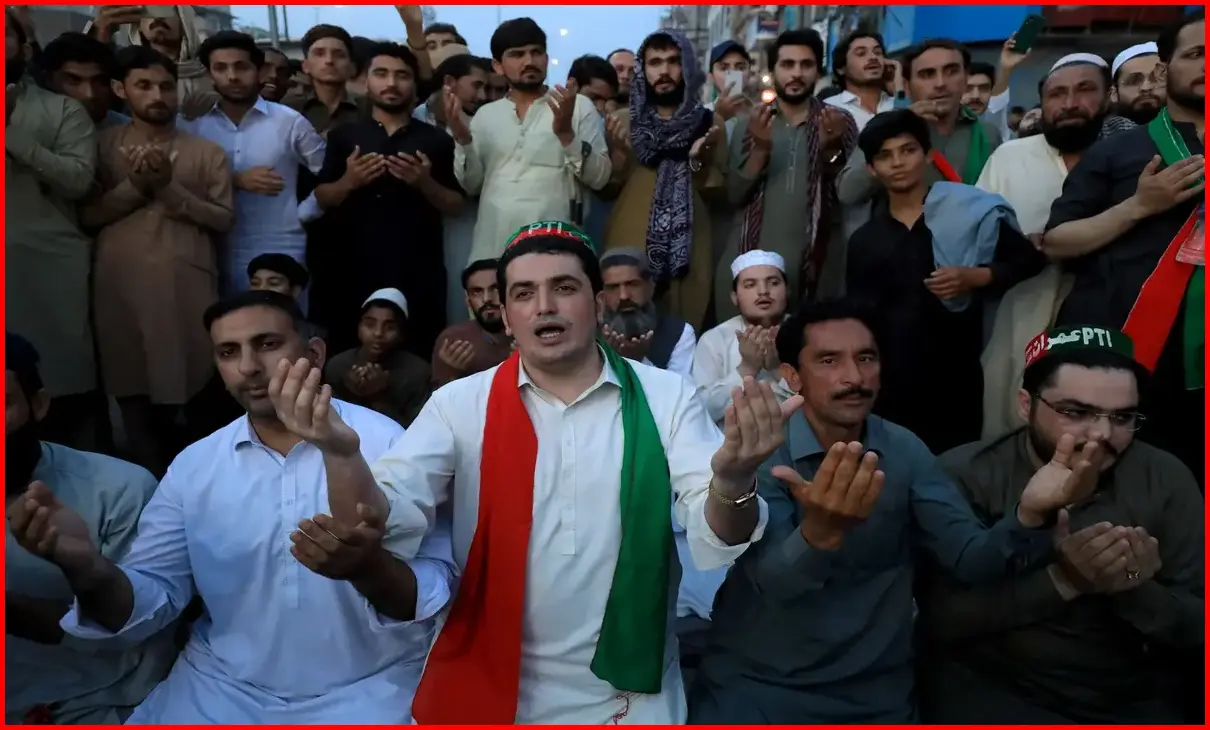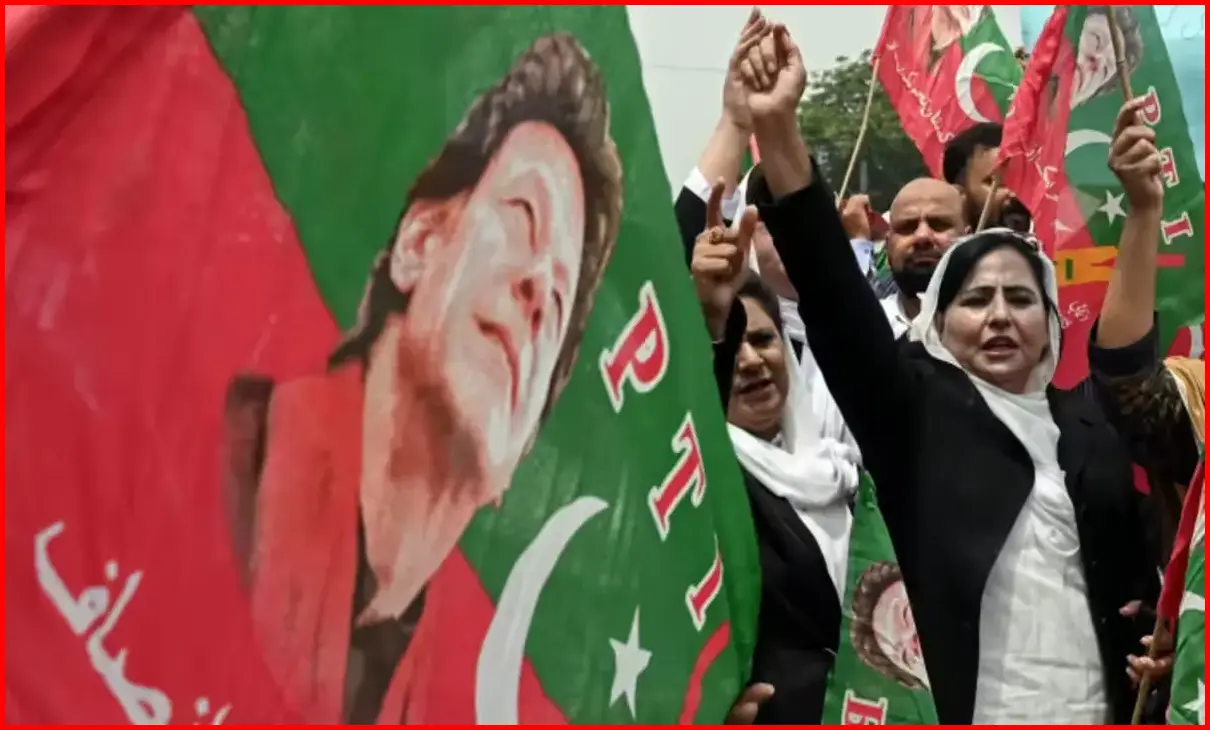The aftermath of Pakistan Elections' recent national has plunged the nation into a state of uncertainty and apprehension as the release of election results encounters significant delays. The Election Commission of Pakistan (ECP) finds itself under intense scrutiny as it grapples with technical glitches and logistical challenges, prompting urgent calls for transparency and expedited resolution. In this expanded discourse, we delve deeper into the complexities surrounding Pakistan Elections' saga and the implications for the nation's political landscape.
Pakistan Elections: Unprecedented Delays and Technical Hurdles
At the heart of the electoral turmoil lies a series of unprecedented delays in the release of election results. The nation was left in limbo as polling officials struggled to overcome technical hurdles, with the ECP issuing a late-night warning to expedite the release of results. A purported "internet issue" further compounded the situation, casting doubts on the integrity of the electoral process and fueling anxieties among the electorate. The ECP's efforts to address these challenges underscore the urgency of the situation and the imperative for transparent and accountable governance.

Read More: Unveiling Putin: A Comprehensive Analysis of Tucker Carlson Website Exclusive Interview
Slow Progression of Results and Political Implications:
As the nation awaited eagerly for clarity on the electoral outcome, the slow progression of results added to the mounting suspense. Previous elections had witnessed a more expeditious dissemination of results, making the current delays all the more glaring. The unexpected early indicators favoring Imran Khan's Pakistan Tehreek-e-Insaf (PTI) party injected an element of unpredictability into the electoral narrative, raising questions about the dynamics of political power and the influence of regional actors. Against the backdrop of economic uncertainty and escalating security threats, the implications of the election results carry profound significance for Pakistan's future trajectory.
Geopolitical Dynamics and Security Concerns:
The electoral process unfolds amidst a backdrop of heightened geopolitical tensions and security challenges, underscoring the fragile nature of Pakistan Elections' political landscape. The contest between candidates backed by Imran Khan and Nawaz Sharif reflects the deeply polarized nature of Pakistani politics, with ramifications for regional stability and international relations. Against this volatile backdrop, concerns have been raised about the integrity and credibility of the electoral process, as sporadic incidents of violence underscore the fragility of democratic institutions and the specter of external interference looms large.

Pakistan Elections: International Observations and Concerns:
The delays and disruptions in Pakistan Elections' process have reverberated on the international stage, eliciting expressions of concern from the global community. Restrictions on freedom of expression, particularly pertaining to internet and cellphone use, have drawn condemnation from international observers. The United States, in particular, has voiced apprehensions about the integrity of the electoral process and the need for transparency and accountability. As Pakistan grapples with its democratic transition, the eyes of the world remain fixed on the nation's evolving political landscape.
Political Context and Historical Precedents Pakistan Elections:
To grasp the gravity of the current electoral turmoil, it's imperative to contextualize it within Pakistan's turbulent political history. Pakistan Elections, a nation marred by coups, political instability, and military interventions, has long struggled to establish a robust democratic framework. Despite periodic transitions to civilian rule, the specter of military influence looms large over the nation's political landscape, shaping electoral dynamics and governance structures. Against this backdrop, each election cycle represents a critical juncture in Pakistan's democratic evolution, with ramifications extending far beyond its borders.
Challenges of Electoral Oversight and Governance:
Central to the current electoral impasse are the myriad challenges facing Pakistan Elections' oversight mechanisms and governance structures. The Election Commission of Pakistan (ECP), tasked with ensuring the integrity and fairness of the electoral process, confronts a daunting array of logistical, technical, and security challenges. From voter registration irregularities to allegations of vote tampering and intimidation, the ECP grapples with a host of issues that undermine public trust in the electoral process. Moreover, the ECP's ability to enforce electoral regulations and adjudicate disputes is often hampered by institutional weaknesses and political interference, further complicating efforts to uphold democratic norms.
Technological Innovations and Electoral Transparency:
In an era marked by rapid technological advancements, the role of digital tools and platforms in promoting electoral transparency cannot be overstated. From electronic voting systems to real-time results tracking, technology holds the promise of enhancing the integrity and efficiency of the electoral process. However, the recent "internet issue" cited as the cause of delays underscores the vulnerabilities inherent in Pakistan's digital infrastructure. Addressing these vulnerabilities and harnessing the full potential of technology will be essential in bolstering public confidence in the electoral process and safeguarding the democratic principles upon which Pakistan's future depends.
Civil Society Engagement and Democratic Participation:
Amidst the electoral uncertainty gripping the nation, civil society emerges as a critical actor in safeguarding democratic principles and promoting civic engagement. Non-governmental organizations, advocacy groups, and grassroots movements play a pivotal role in monitoring elections, advocating for electoral reforms, and mobilizing citizens to exercise their democratic rights. In the face of mounting challenges, civil society's role as a watchdog and advocate for democratic values becomes increasingly indispensable, serving as a bulwark against authoritarianism and ensuring that the voices of the marginalized and disenfranchised are heard.
International Support and Diplomatic Engagement:
As Pakistan Elections navigates its democratic transition, international support and diplomatic engagement assume heightened importance. From election monitoring missions to diplomatic interventions, the international community plays a crucial role in promoting electoral integrity and democratic governance. In light of concerns raised about the transparency and fairness of the electoral process, concerted international efforts are needed to uphold democratic norms and principles. By standing in solidarity with Pakistan's democratic aspirations, the global community can help pave the way for a more inclusive, transparent, and accountable political future.

In conclusion, Pakistan Elections' saga reflects the complexities and challenges inherent in its democratic journey. From technological shortcomings to institutional deficiencies, the current electoral turmoil underscores the need for comprehensive reforms to strengthen democratic institutions and uphold electoral integrity. By addressing these challenges head-on and fostering greater transparency, accountability, and civic engagement, Pakistan can chart a path towards a more inclusive and resilient democracy. As the nation grapples with the aftermath of its recent national election, the imperative for collective action and international solidarity has never been clearer.



You must be logged in to post a comment.